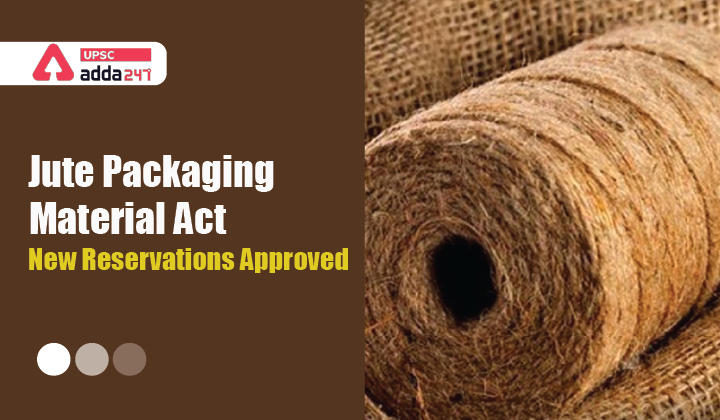Table of Contents
Relevance
- GS 2: Government policies and interventions for development in various sectors.
Context
- Recently, Ministry of Textiles has approved reservation norms for mandatory use of jute in packaging for the jute year 2021-22.
Key points
- The mandatory packaging norms approved for Jute Year 2021-22 provide for 100% reservation of the foodgrains and 20% of sugar to be compulsorily packed in jute bags.
- The reservation norms in present proposal would further the interest of domestic production of raw jute and jute packaging material in India, thereby, making India self-reliant in consonance with Aatmanirbhar Bharat.
- Reservation for packaging in jute packaging material consumed around 57% of the raw jute produced in the country.
- It will help protect the environment because jute is natural, biodegradable, renewable & reusable fibre and hence fulfils all sustainability parameters.
Climate Change Performance Index 2022 Ranking
About Jute Packaging Material Act, 1987
- The reservation norms under the Jute Packaging Material Act (JPM Act) provide for direct employment to 7 lakh workers and 40 lakh farmers in the Jute Sector.
- JPM Act, 1987 protects the interest of jute farmers, workers and persons engaged in jute goods’ production.
- 75% of the total production of the Jute Industry is Jute Sacking Bags of which 90% is supplied to the Food Corporation of India (FCI) and State Procurement Agencies (SPAs) and remaining is exported/sold directly.
- Government purchases jute sacking bags worth approximately 8,000 Cr. every year, for packing of foodgrains, hence ensures guaranteed market for the produce of jute farmers and workers.
- Average production of jute sacking bags is about 30 lakhs bales (9 lakh MT) and government is committed to ensure complete take off of the sacking production of the jute bags in order to protect the interest of jute farmers, workers and persons engaged in the jute industry.




 TSPSC Group 1 Question Paper 2024, Downl...
TSPSC Group 1 Question Paper 2024, Downl...
 TSPSC Group 1 Answer key 2024 Out, Downl...
TSPSC Group 1 Answer key 2024 Out, Downl...
 UPSC Prelims 2024 Question Paper, Downlo...
UPSC Prelims 2024 Question Paper, Downlo...




